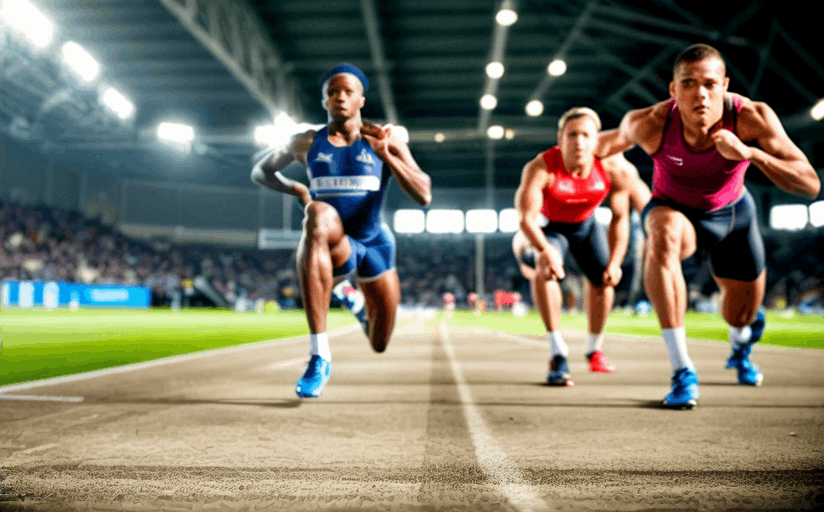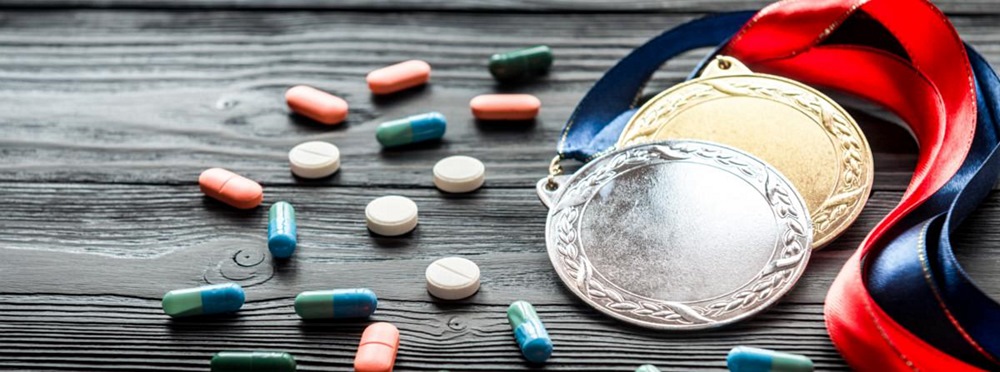Last Updated on: 18th December 2024, 12:30 pm
Sports drinks were developed in the 1960s to help athletes hydrate and refuel. These drinks combine water, electrolytes, and carbohydrates to enhance performance by replenishing nutrients lost through sweat.
- Hydration and electrolyte balance are crucial during physical activity.
- Exertion leads to the loss of water and minerals like sodium and potassium, impacting muscle function and hydration.
- Sports drinks restore this balance, quenching thirst and replenishing essential nutrients to maintain endurance and prevent dehydration.
Incorporating sports drinks into your routine can significantly impact athletic performance. Understanding their role can help you achieve personal bests by optimizing hydration and nutrient replenishment.
Understanding the Key Ingredients in Sports Drinks

Sports drinks contain key ingredients that support peak performance.
- Electrolytes like sodium, potassium, magnesium, and calcium are vital for hydration and muscle function, replenishing what is lost in sweat.
- Carbohydrates, mainly sugars, provide quick energy for high-intensity activities.
- Vitamins and minerals support overall health and recovery, preparing the body for future challenges.
The formulation of sports drinks is a precise balance of ingredients, each selected for its role in supporting the body during exertion. Understanding this can help you choose the right sports drinks for your training regimen.
Maximizing Your Performance with Sports Drinks

- Hydration: The Foundation of Performance
Sports drinks prevent dehydration and maintain fluid balance during prolonged activity by replacing fluids and electrolytes lost through sweat. - Energy: The Quick Boost Your Muscles Crave
They provide rapid carbohydrates for immediate muscle fuel, essential for sustaining performance and delaying fatigue. - Recovery: Beyond the Finish Line
Sports drinks aid recovery by replenishing electrolytes and supporting muscle recovery, preparing you for your next challenge.
Sports drinks offer unique benefits compared to water, especially for prolonged or high-intensity activities. They are essential for maximizing performance and supporting recovery.
When and How to Use Sports Drinks Effectively

- Identifying the Right Time
Consume sports drinks during activities lasting more than an hour or high-intensity sports with significant sweat loss to replenish fluids and electrolytes. - Quantity and Frequency: Finding Your Balance
Start with small, frequent sips during activity, adjusting based on thirst and sweat rate. Typically, 4-6 ounces every 15-20 minutes is effective. - Tailoring Intake
Adjust intake based on sport type, duration, and intensity. Endurance athletes may rely more on sports drinks than those in short, intense activities. - Special Considerations
Young athletes and beginners should start with lower quantities, increasing as needed to avoid excess sugars and electrolytes.
Using sports drinks effectively can enhance performance by ensuring hydration and energy levels are maintained during activity.
Potential Downsides and How to Avoid Them

The Risk of Overconsumption
Excessive sports drink consumption can lead to weight gain and dental issues due to sugars and calories. Moderation is key.
Understanding When Water May Be a Better Option
For activities under an hour or low intensity, water is often sufficient, providing hydration without added sugars and calories.
How to Choose the Right Sports Drink
Select sports drinks with low sugar and natural ingredients to minimize health risks while providing necessary electrolytes and energy.
By considering these factors, you can benefit from sports drinks without unwanted side effects, choosing wisely based on your needs.
The Future of Sports Drinks and Emerging Trends

Innovations in Sports Nutrition: Natural and Organic Options
- Natural Ingredients: Sports drinks are increasingly using organic ingredients, moving away from artificial additives to meet demand for natural products.
- Health Benefits: These alternatives provide essential electrolytes without synthetic flavors or colors, aligning with healthier lifestyle choices.
Personalized Sports Drinks: Custom Formulations Based on Individual Needs
- Tailored Nutrition: Advances in nutrition science allow for sports drinks customized to individual needs, optimizing performance.
- Enhanced Performance: Personalized mixes ensure peak performance and improved recovery times.
The Role of Technology in Monitoring Hydration and Electrolyte Needs
- Smart Hydration: Wearable devices and sensors monitor hydration and electrolyte loss, providing real-time data to athletes.
- Optimized Hydration: This technology ensures athletes stay perfectly hydrated, maximizing performance and recovery.
Staying informed about these trends can help you make the best choices for your body and performance, whether opting for natural or personalized sports drinks.
Wrapping It Up
Sports drinks enhance athletic performance by balancing hydration and energy, supporting endurance and recovery. By choosing the right sports drink, you can push your limits and achieve fitness goals. Stay informed about sports nutrition advancements to make wise choices for your performance.

